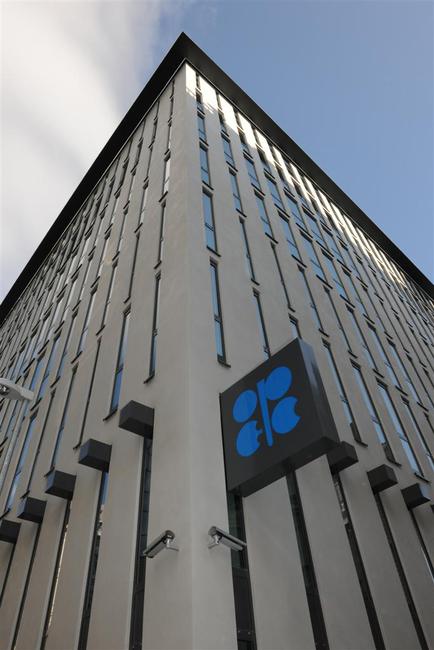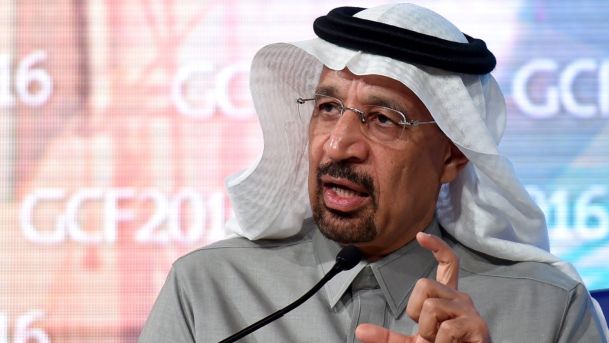Saudi’s internal needs first, OPEC’s somewhere down the scale
With the biannual OPEC meeting fast approaching, many are wondering what role Saudi Arabia will take in the organization with the recent change of oil ministers. Traditionally, Saudi Arabia has served as the leader of OPEC, but with the organization’s role of market balancer cast aside, and Saudi visions of an economy less dependent on producing and selling oil, what role will OPEC’s largest producer play in the group’s future?
Very little is expected to come from OPEC’s June 2 meeting in Vienna. International crude benchmark Brent is up today, sitting just below the $50 mark, taking some of the pressure off Saudi Arabia to change its policy of producing at full speed in order to lift prices from three-year lows. Prices initially started climbing from their lows following news that OPEC and non-OPEC producers were discussing a production freeze. The deal fell through when Saudi Arabia announced they would not join the deal without Iran, something the Islamic Republic repeatedly said it had no intentions of doing.
Oil prices have continued to strengthen despite the lack of a production freeze, but the last-minute move from Saudi Arabia to tank a deal it helped to initiate show growing pressure inside the kingdom to focus on domestic policy over OPEC strategy. It appears that Saudi Arabia will remained focused on its goals over boosting prices through a production cut in Vienna this week as well.
There is no specific proposal on production on the meeting’s agenda, said Falah al-Amri, Iraq’s OPEC envoy. That was echoed by several OPEC representatives who met in Vienna ahead of the gathering, reports The Wall Street Journal.
New oil minister: we are prioritizing domestic energy policy over OPEC
Earlier this month, Saudi Arabia made sweeping changes to a number of ministries, including the influential Ministry of Energy, Industry and Mineral Resources. Long-time minister Ali al-Naimi was replaced by Khaled al-Falih, who formerly served as the health minister and chairman of Saudi Aramco.
The shakeup comes as Saudi Deputy Crown Prince Mohammed bin Salman starts down a path of diversifying the kingdom’s economy away from oil. Falih’s appointment appears to be part of the growing focus on Saudi policy over OPEC policy.
“The Falih appointment is clearly about domestic policy more so than international oil policy,” said Yasser Elguindi, an oil analyst at U.S.-based consultancy Medley Global Advisors.
Falih follows a number of incredibly influential oil ministers. Going back four decades, Sheikh Zaki Yamani orchestrated the oil embargoes of the 1970s, which influenced the formation of U.S. policies like the crude oil export ban, which was lifted in December.
Yamani’s successor, Naimi, dominated OPEC’s decision making for a quarter-century, and included policy changes like defending market share over price, which has changed the global oil and gas landscape in ways felt by every sector of the industry today, and has caused significant economic hardship among many oil producing economies, both OPEC and non-OPEC .
How much influence Falih may exercise over OPEC policy remains to be seen, however. With a focus on domestic issues, OPEC may no longer be the primary concern for the Saudi oil minister.
“The coming period is going to be a real test of whether or not OPEC is still alive,” said Mohammad al-Sabban, an independent oil analyst and former senior adviser to the Saudi oil ministry.
Falih’s track record of strengthening the Saudi refining sector

During Falih’s tenure at Aramco, Saudi’s state-owned oil and gas giant, the minister oversaw a shift of value-added projects, including expansion of its refining sector, in order to maximize the profits Saudi received from its oil production. Under Falih’s leadership, Aramco expanded its refining capacity to 5.4 MMBOPD from 2.4 MMBOPD from 2009 to 2015.
Many of the refineries the company built were established through joint venture projects with the largest purchasers of Saudi oil, including the U.S. and China. Saudi Arabia is also negotiating the construction of a refinery in India, which is expected to surpass China as the largest source of energy demand growth in the coming decades.
Now he’s not just responsible for producing oil, but also keeping the kingdom’s lights and air conditioning on
Under the new structure of the oil ministry, Falih is also responsible for the country’s power sector, adding to his responsibilities at home.
Domestic demand for energy has skyrocketed as the population grows under a system of subsidized energy. On some of the hottest summer days, Saudi Arabia burns as much as 900 MBOPD, or one in every 10 barrels it produces, for domestic electricity. This heavy reliance on oil for domestic power generation means Falih has less flexibility to scale back or ramp up oil production in response to political developments, or influence markets.
“It’s really a new chapter in Saudi oil policy,” said Antoine Halff, an oil economist and fellow at the Center on Global Energy Policy at Columbia University in New York.
The Saudi electricity picture
A few years ago Aramco launched a major push to recruit expertise to explore and exploit its natural gas resources, especially for the development of unconventional gas. The idea was to produce gas that would be used for its power generation, but the development effort has been slow coming. Efforts in Saudi Arabia to expand onshore non-associated gas production have experienced difficulties in finding and extracting natural gas because of the high sulphur content of the natural gas and low domestic natural gas prices.
The Saudi Electricity Company (SEC) has plans to reduce direct crude burn for electricity generation by more than 500,000 BOPD by switching to natural gas, says the EIA. By 2032, Saudi Arabia plans to add 41 GW of solar power, 18 GW of nuclear power, and 4 GW from other renewable sources to expand electricity supply, according to Saudi Power.
Saudi Power reports that SEC is the largest provider of electricity in the Saudi Arabia, with total available generating capacity of 58 GW.43 The state-owned Saline Water Conversion Corporation (SWCC), which provides most of the Saudi Arabia’s desalinated water, is the second-largest generator of electricity. SWCC plans to rapidly increase its desalination capacity, with an equivalent increase in generation capacity. Privately-owned independent water and power plants also provide electricity to the grid.
Saudi Arabia has also discussed a $1.6 billion, 3 GW cable link with Egypt, whose peak electricity demand hours vary from those of Saudi Arabia. Bidding for the project is expected to begin this year.






